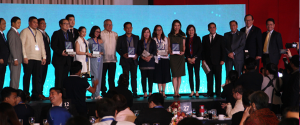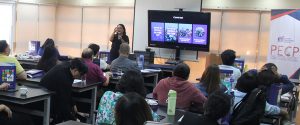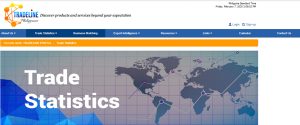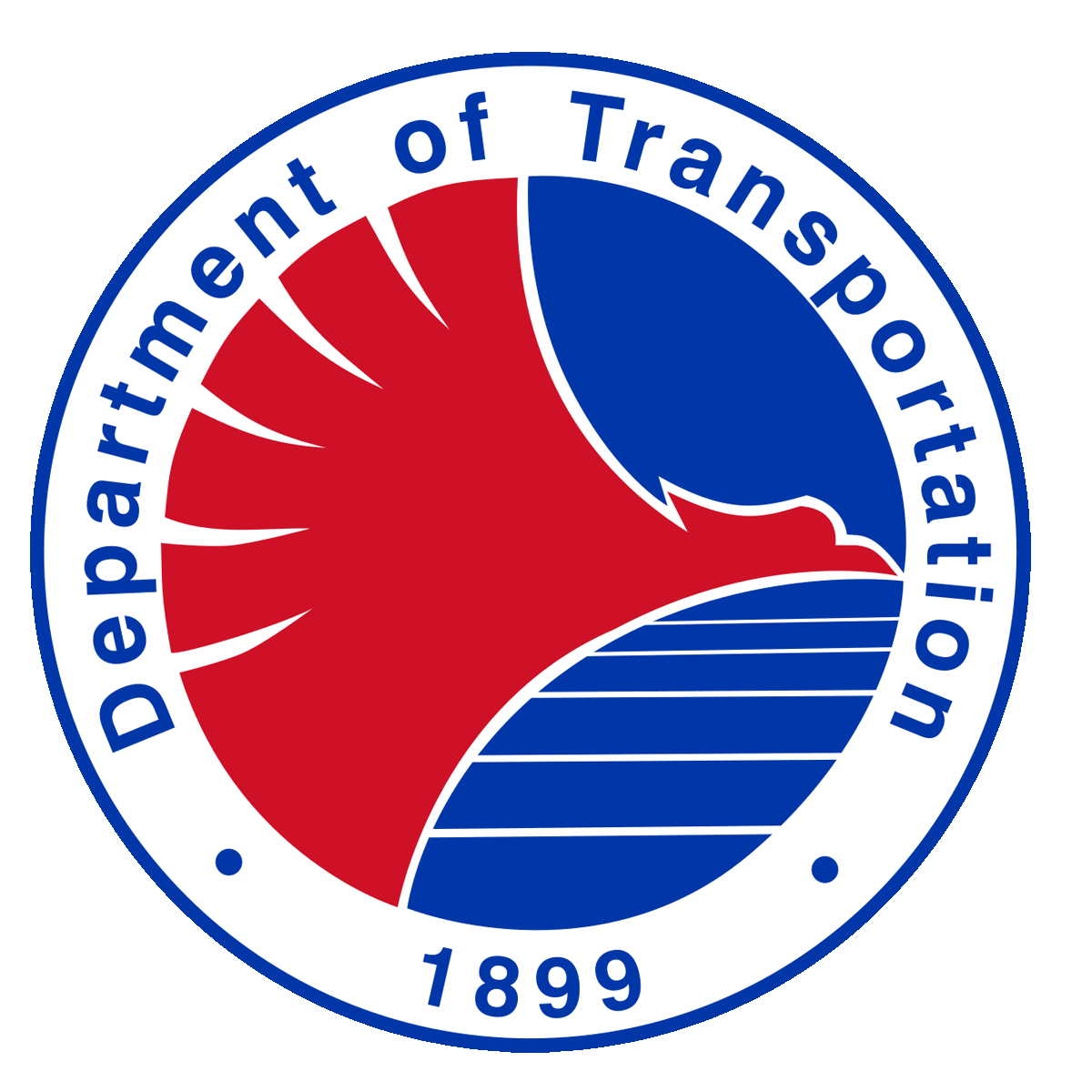 “Driving Exports Through Digital Transformation” was this years’ theme for the annual National Export Congress which was successfully conducted last 06 December 2019 at the Philippine International Convention Center. The theme focused on technology and innovation initiatives to grow exports and promote collaboration between and among the government, industry and academe as a critical element in improving the country’s economy.
“Driving Exports Through Digital Transformation” was this years’ theme for the annual National Export Congress which was successfully conducted last 06 December 2019 at the Philippine International Convention Center. The theme focused on technology and innovation initiatives to grow exports and promote collaboration between and among the government, industry and academe as a critical element in improving the country’s economy.
The Congress tackled timely and relevant issues on what policies can the government develop to cope up with the demand and rigors of converting the country’s international trade agenda into the digital era. It also tackled how businesses, especially the export sector, could equip themselves and properly respond to the fast-changing technological revolution that is dominating and shaping today’s global trade.
DTI Secretary Ramon M. Lopez, in his keynote speech, revealed that the department has called for a P25 billion to P30 billion budget for the export sector over a three-year period as government moves to provide all-out support for the export sector through incentives under the Strategic Investment Priorities Plan (SIPP), implementation of standards and safeguard measures to strengthen domestic manufacturing, reduced trade barriers, and fund mobilization, including soft loans. The Trade Chief added that such a move will not only bolster the country’s economic growth but will address our trade deficit, generate more jobs and employment and income opportunities for Filipinos.
On the other hand, PHILEXPORT President, Mr. Sergio R. Ortiz-Luis, Jr, emphasized the need for the country’s MSMEs to level up their operations and improve their business processes and efficiencies as the economy moves towards emerging opportunities in the age of digitalization.
 Moreover, the NEC also gave due recognition and acknowledgment to twenty-one (21) Top Filipino exporters of 2018. They were given recognition based on their track record, excellence and innovation in the delivery of goods and services. Their fortitude and determination to achieve success in producing globally competitive products has greatly contributed to the country’s export revenue.
Moreover, the NEC also gave due recognition and acknowledgment to twenty-one (21) Top Filipino exporters of 2018. They were given recognition based on their track record, excellence and innovation in the delivery of goods and services. Their fortitude and determination to achieve success in producing globally competitive products has greatly contributed to the country’s export revenue.
The awards were presented and handed out by DTI Secretary Ramon Lopez, PHILEXPORT President Sergio Ortiz-Luis, Undersecretary Abdulgani Macatoman, and DTI-EMB Director, Senen M. Perlada.
The NEC is the culminating event of the National Exporters Week (NEW). Every first week of December is the annual celebration of the NEW per Presidential Proclamation No. 9931, s. 1996 and House Resolution No. 33. It highlights the government and private sectors’ commitment to continuously work together to sustain export promotion and development.-GTM
 Exporters were encouraged by Canva Philippines to use the Canva app for graphic marketing design. Resource speakers from Canva Philippines lectured on graphic design basics and application of its design principles on how to strengthen brand style and social media presence. Canva is a free application useful to exporters in developing innovative marketing strategies to better connect with their customers locally and in the global market.
Exporters were encouraged by Canva Philippines to use the Canva app for graphic marketing design. Resource speakers from Canva Philippines lectured on graphic design basics and application of its design principles on how to strengthen brand style and social media presence. Canva is a free application useful to exporters in developing innovative marketing strategies to better connect with their customers locally and in the global market.
 Tradeline Philippines is a platform beneficial to exporters for it is an integrated export information system that provides regular trade statistics reports, market and product information, supplier and buyer databases, online business matching with foreign buyers and other trade-related information through the web. Exporters are encouraged to register and update company profile thru
Tradeline Philippines is a platform beneficial to exporters for it is an integrated export information system that provides regular trade statistics reports, market and product information, supplier and buyer databases, online business matching with foreign buyers and other trade-related information through the web. Exporters are encouraged to register and update company profile thru  “Driving Exports Through Digital Transformation” was this years’ theme for the annual National Export Congress which was successfully conducted last 06
“Driving Exports Through Digital Transformation” was this years’ theme for the annual National Export Congress which was successfully conducted last 06  Moreover, the NEC also gave due recognition and acknowledgment to twenty-one (21) Top Filipino exporters of 2018. They were given recognition based on their track record, excellence and innovation in the delivery of goods and services. Their fortitude and determination to achieve success in producing globally competitive products has greatly contributed to the country’s export revenue.
Moreover, the NEC also gave due recognition and acknowledgment to twenty-one (21) Top Filipino exporters of 2018. They were given recognition based on their track record, excellence and innovation in the delivery of goods and services. Their fortitude and determination to achieve success in producing globally competitive products has greatly contributed to the country’s export revenue. The Philippines can now exchange electronic Certificate of Origin (e-CO) with Indonesia and Malaysia as it joins ASEAN Single Window (ASW) Live Operation on 30
The Philippines can now exchange electronic Certificate of Origin (e-CO) with Indonesia and Malaysia as it joins ASEAN Single Window (ASW) Live Operation on 30 
 During his Government Address on The Roads and Traffic Expo, Chairman Danilo Lim of Metro Manila Development Authority (MMDA) talked about the importance of transportation as one of the key sector in our fast growing economy.
During his Government Address on The Roads and Traffic Expo, Chairman Danilo Lim of Metro Manila Development Authority (MMDA) talked about the importance of transportation as one of the key sector in our fast growing economy. The Department of Trade and Industry-Export Marketing Bureau (DTI-EMB), Export Development Council (EDC) and the Philippine Exporters Confederation, Inc. (PHILEXPORT) cordially invites all exporters, Small and Medium Enterprises, Academe, International Organizations and relevant stakeholders to save the date and participate in this year’s National Export Congress (NEC) 2019 on 06 December 2019, 8:00 -4:00 PM at the Philippine International Convention Center, CCP Complex, Pasay City, with the theme “DRIVING EXPORTS THROUGH DIGITAL TRANSFORMATION”.
The Department of Trade and Industry-Export Marketing Bureau (DTI-EMB), Export Development Council (EDC) and the Philippine Exporters Confederation, Inc. (PHILEXPORT) cordially invites all exporters, Small and Medium Enterprises, Academe, International Organizations and relevant stakeholders to save the date and participate in this year’s National Export Congress (NEC) 2019 on 06 December 2019, 8:00 -4:00 PM at the Philippine International Convention Center, CCP Complex, Pasay City, with the theme “DRIVING EXPORTS THROUGH DIGITAL TRANSFORMATION”.